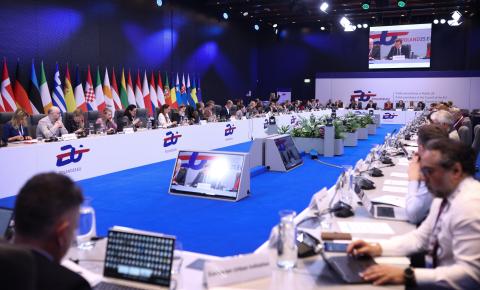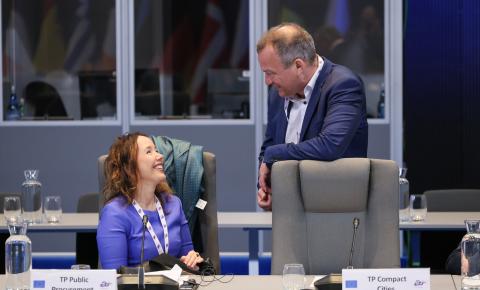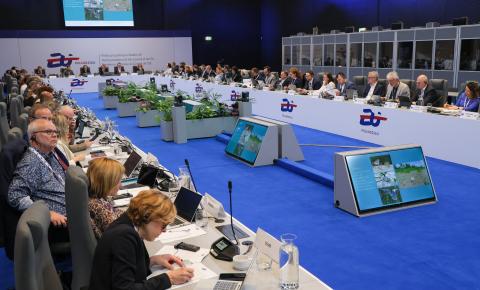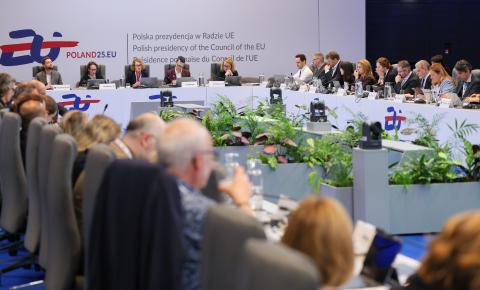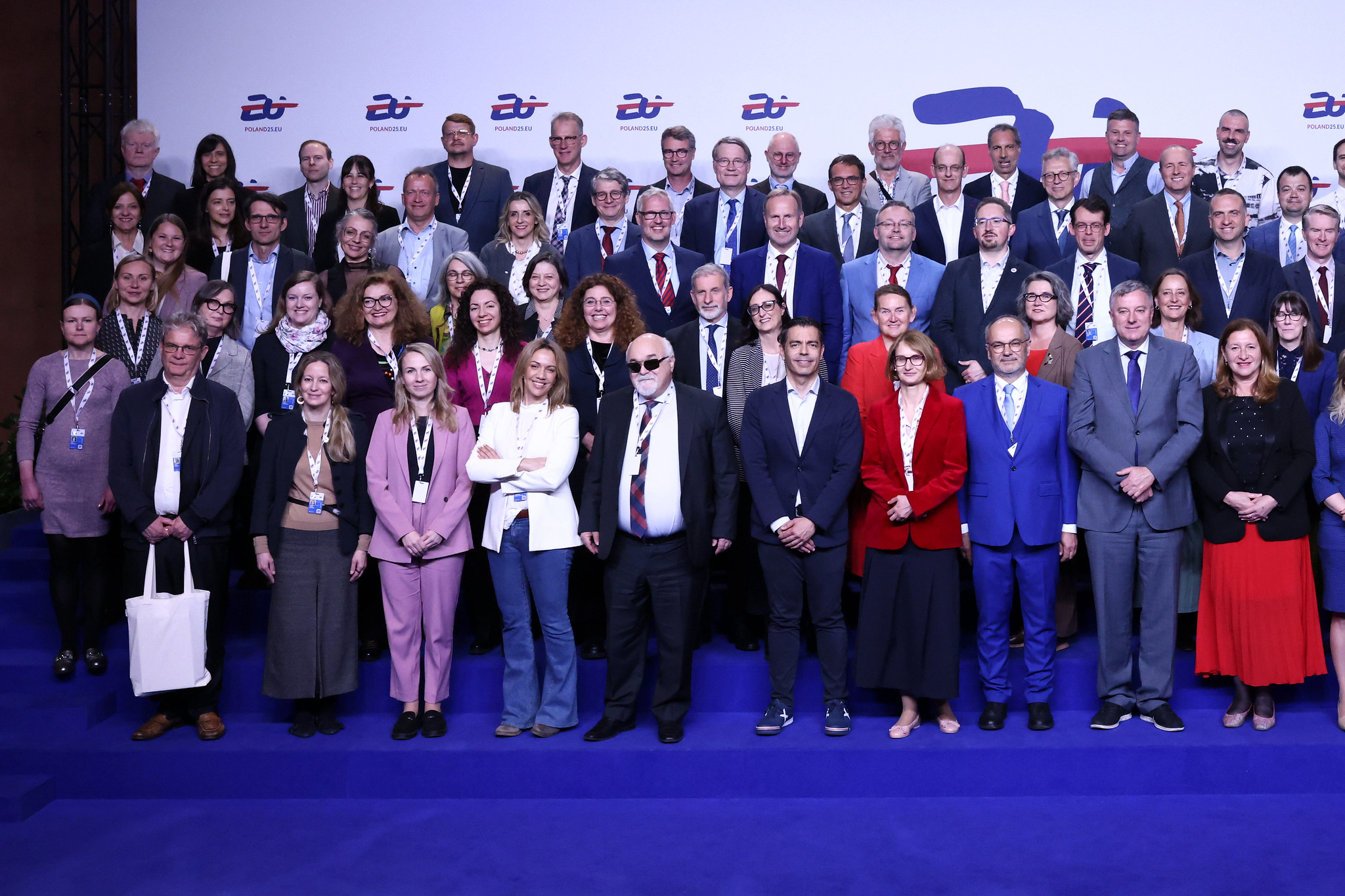
Food and Cities of Equality draft Action Plans officially introduced at DGUM meeting
A significant step in the Partnerships’ lifespan
Having started their work in January 2024, both Food and Cities of Equality Partnerships have developed their draft Action Plans through a collaborative process involving brainstorming, consultation, and refinement of an initial list of proposed actions. This process ensured alignment with the shared vision, objectives, resources, and expertise of all Partnership members.
Also, the Partnership on Public Procurement, active since 2017, presented its third Action Plan at the DGUM meeting, continuing its commitment to promoting the development and implementation of an ambitious procurement strategy as an integrated and supportive tool for governance.
Food draft Action Plan
The Food Partnership is proud to have finalised the Draft Food Action Plan, built upon seven interconnected actions to drive the transformation of food systems through a holistic and systemic approach. We recognise cities as key leaders in this transition and affirm the importance of empowering them through knowledge-sharing and capacity-building. Through this Action Plan, we aim to support cities in the development, implementation, monitoring, and financing of local food strategies. Furthermore, we call for an enabling EU policy framework for local food policies that ensures cross-sectoral and multi-level alignment—from the European to the local level—to foster coherence, collaboration, and lasting impact.”,
The seven actions proposed by the Food Partnership share a common goal: to strengthen the role of cities in transforming food systems towards greater sustainability, resilience, and equity.
To achieve this, the Partnership has adopted multilevel governance and multi-stakeholder approaches, ensuring that the actions address key levels of food system governance and reflect the complexity of actors involved. These approaches are essential for driving systemic change, as they foster inclusive participation, shared accountability, and alignment across local, regional, and national policies. This collaborative framework empowers cities not only to act as implementers, but also as innovators and leaders in the transformation of sustainable food systems.
Each action builds on concrete results and methodologies developed through several EU-funded projects—such as Food Trails, SchoolFood4Change, and CleverFood—which help ensure consistency and coherence across actions. By building on these EU-wide experiences, the Partnership promotes mutual learning and scalability, enabling cities to adapt and expand successful practices to suit their local contexts.
Furthermore, by embedding communication strategies within each action—targeting both institutional stakeholders and the public—the initiative ensures transparency, strengthens stakeholder engagement, and increases the visibility and impact of results.
Visit the Food webpage to further explore the contents of the Draft Action Plan
Cities of Equality draft Action Plan
"The Cities of Equality Partnership is pleased to present its Draft Action Plan, the result of a collaborative and participatory process involving cities, national authorities, European institutions, and civil society networks. The Plan lays out three interlinked actions aimed at advancing equality and inclusion in urban areas, grounded in the principles of intersectionality and human-centred policy making. Our goal is to support cities in addressing structural barriers by strengthening their capacity for evidence-based policymaking, inclusive and participatory governance, and equality-responsive public investment,”
The three actions at the heart of this plan reflect the Partnership’s commitment to creating more just and inclusive cities. The first action aims to develop a framework for assessing spatial segregation and access to services. The second action focuses on mainstreaming equality criteria into result-based EU funding instruments. The third action gathers and shares innovative practices for citizen participation and co-governance, supporting local authorities in developing inclusive participatory mechanisms.
These actions are conceived as mutually reinforcing and are embedded in a broader strategy that integrates better regulation, better knowledge, and better funding. This systemic approach not only empowers cities to act locally but also seeks to influence EU frameworks by advocating for equality-sensitive policies, funding rules, and governance models.
Building on the ambitions set out in the Orientation Paper, the Draft Action Plan seeks to bring these priorities into action. The Partnership will champion inclusive urban development that responds to the real needs of communities, especially the most vulnerable, and aims to create enabling conditions for meaningful participation and more equitable access to services.
Visit the Cities of Equality webpage to explore the Draft Action Plan.
New Action Plan of the Public Procurement Partnership
The new Action Plan for 2025-2028 of the Public Procurement Partnership will focus on three main actions:
- Action 1: Capacity building for Public Procurement as a strategic tool
- Action 2: Advocacy for better regulation
- Action 3: Improved funding to stimulate strategic procurement
All three actions also contribute to the broader goals of the Urban Agenda for the EU. Through these actions, the Partnership continues to build on existing initiatives and projects, focusing on innovative and responsible public procurement as a strategic tool for achieving social, economic, and environmental policy goals.
Visit the Public Procurement webpage to explore the Draft Action Plan.
Future steps
A public consultation on the Food and Cities of Equality draft Action Plans will run from 6 May to 6 June. It will be open to a wide range of stakeholders—including national, regional, and local urban authorities; institutions; private sector actors; and civil society organisations—with the goal of further strengthening and improving the proposed Actions.
The feedback collected will support the finalisation of the Action Plans by July 2025.
